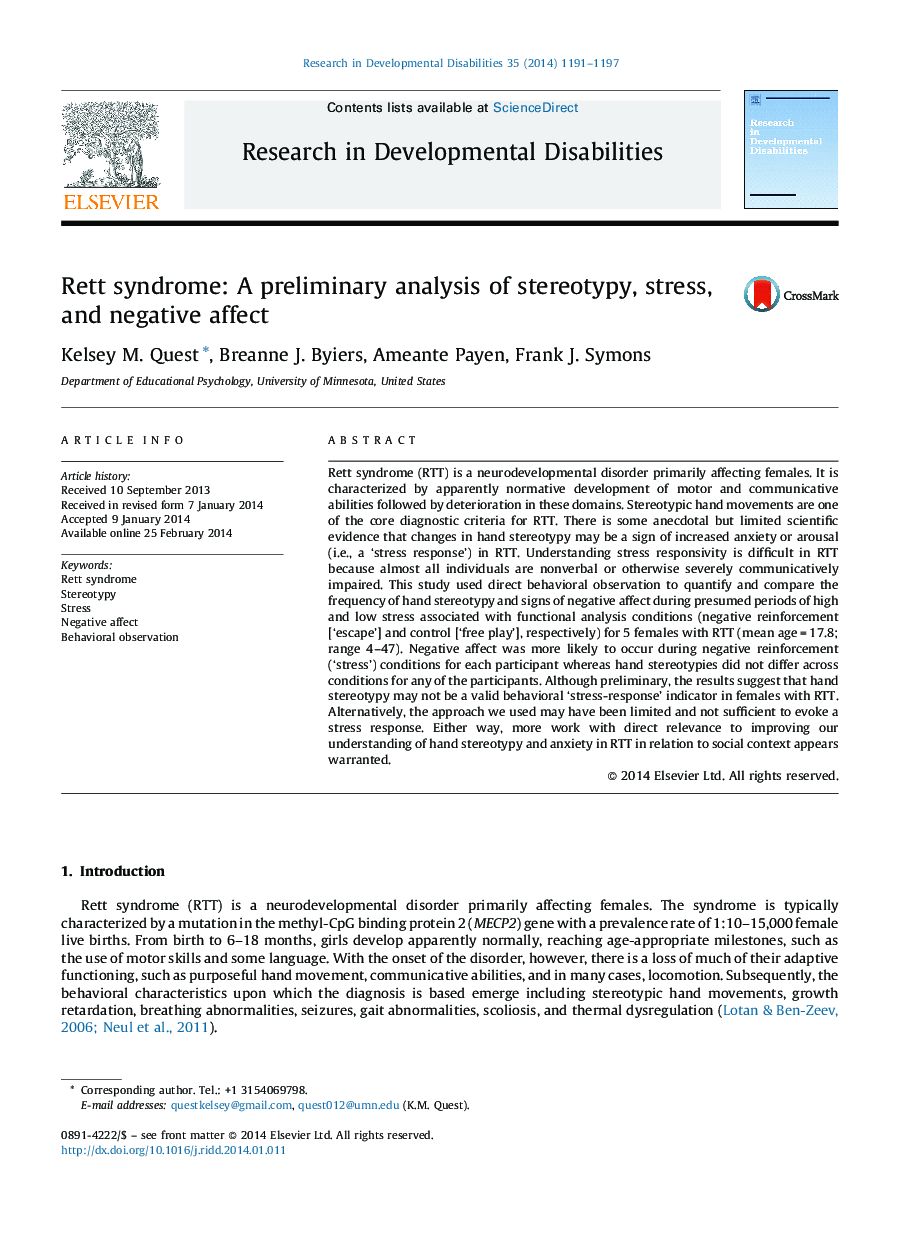| کد مقاله | کد نشریه | سال انتشار | مقاله انگلیسی | نسخه تمام متن |
|---|---|---|---|---|
| 10317414 | 621914 | 2014 | 7 صفحه PDF | دانلود رایگان |
عنوان انگلیسی مقاله ISI
Rett syndrome: A preliminary analysis of stereotypy, stress, and negative affect
دانلود مقاله + سفارش ترجمه
دانلود مقاله ISI انگلیسی
رایگان برای ایرانیان
کلمات کلیدی
موضوعات مرتبط
علوم زیستی و بیوفناوری
علم عصب شناسی
علوم اعصاب رفتاری
پیش نمایش صفحه اول مقاله

چکیده انگلیسی
Rett syndrome (RTT) is a neurodevelopmental disorder primarily affecting females. It is characterized by apparently normative development of motor and communicative abilities followed by deterioration in these domains. Stereotypic hand movements are one of the core diagnostic criteria for RTT. There is some anecdotal but limited scientific evidence that changes in hand stereotypy may be a sign of increased anxiety or arousal (i.e., a 'stress response') in RTT. Understanding stress responsivity is difficult in RTT because almost all individuals are nonverbal or otherwise severely communicatively impaired. This study used direct behavioral observation to quantify and compare the frequency of hand stereotypy and signs of negative affect during presumed periods of high and low stress associated with functional analysis conditions (negative reinforcement ['escape'] and control ['free play'], respectively) for 5 females with RTT (mean age = 17.8; range 4-47). Negative affect was more likely to occur during negative reinforcement ('stress') conditions for each participant whereas hand stereotypies did not differ across conditions for any of the participants. Although preliminary, the results suggest that hand stereotypy may not be a valid behavioral 'stress-response' indicator in females with RTT. Alternatively, the approach we used may have been limited and not sufficient to evoke a stress response. Either way, more work with direct relevance to improving our understanding of hand stereotypy and anxiety in RTT in relation to social context appears warranted.
ناشر
Database: Elsevier - ScienceDirect (ساینس دایرکت)
Journal: Research in Developmental Disabilities - Volume 35, Issue 5, May 2014, Pages 1191-1197
Journal: Research in Developmental Disabilities - Volume 35, Issue 5, May 2014, Pages 1191-1197
نویسندگان
Kelsey M. Quest, Breanne J. Byiers, Ameante Payen, Frank J. Symons,